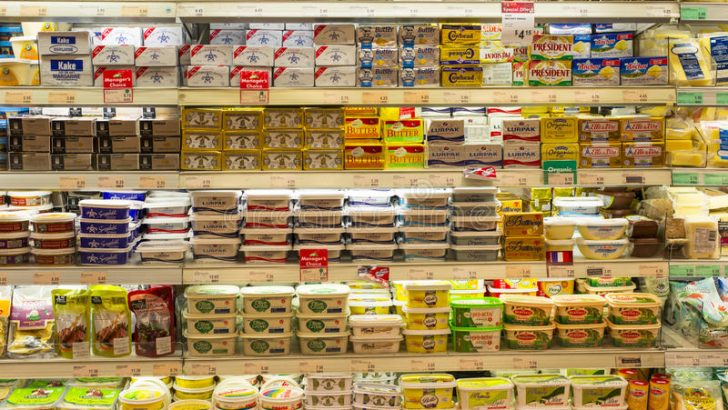People who use the phrase ‘Ireland is a republic’ need to be clear on what they mean by the word, writes Fr Alan Hilliard
Shopping in the local shop many years ago left little room for choice. A tin of beans meant that you got whatever brand of beans was on the shelf. There were probably only two goods that presented the need for choice namely bread — brown or white — or biscuits — whole or broken.
Supermarket shelves are quite different today. Even buying butter takes time. The fridge is laden with real butter, nearly real butter, with salt, without salt, the list goes on.
Choice is a characteristic of our age. Most of the time we stick to what we know, leaving the wide range of goods on the shelf for others to explore.
That is, of course, unless the marketing gurus call our attention to a new or a re-launched item.
As a citizen of Ireland, one might rightly expect that different brands of ‘the Irish Republic’ could be displayed on supermarket shelves.
There are an increasing range of goods in the ‘Irish Republic’ category that, while interesting, are crying out for clarification and a degree of marketing for the sake of clarity and consumer confidence.
For starters, there are among others: ‘The New Republic’; ‘The Modern Republic’; and ‘The Emerging Republic’.
This could be seen as a mere semantic issue but it is the concept of a republic lying in the minds of those that govern the state which determines the policies that are enacted.
A case in point is the front cover of last week’s Irish Catholic.
The vice-chairman of the Oireachtas Committee on Education, Aodhán Ó Ríordáin TD, is quoted as saying ”that religious ethos has no place in the educational system of a modern republic”.
This statement reinforces the need for transparency and clarity with regard to use of the term republic.
The term ‘republic’ is casually thrown around as a coverall for many different interpretations as to the true nature of the state, one which is imposed rather than negotiated.
As with people in a supermarket heading for the butter and bread shelves, butter and bread may mean different things to different customers.
Having clarity on the concept of a republic will bring further clarity on other matters presently being debated in the public forum. One example of this is the present debate over patronage in schools and models of education.
The present debate is falling rather clumsily between stools representing different ideologies and interpretations of ideologies of a republic which is driving those who take part in these debates.
One major historical shift which took place makes this debate all the more difficult. In the past, the concept of a republic had its origins in an external objective frame of reference — namely a concept of God or a sense of a common good.
Today, the frame of reference is a heightened sense of the individual.
This shift is noted by the Canadian sociologist Charles Taylor in The Politics of Recognition in Multiculturalism (1994): ”There is a certain way of being human that is my way. I am called upon to live my life in this way and not in imitation of anyone else’s life. But this notion gives a new importance to being true to myself. If I am not I miss the point of my life; I miss what being human is for me.”
One might interpret this statement as highlighting the rabid individualism of our age.
If this is the case, it is widely agreed that organisations like churches and governments see individualism as a common enemy which is destructive of a social ethic.
Taylor’s insight could also be interpreted as a demand for authenticity. Gone are the days when the concept of a state in whatever shape or form it takes can be imposed.
Gone are the days also when identity can be annihilated in the name of an unexplained or badly formulated concept of a republic.
Whatever emerges must connect with one’s inner nature. That nature can be a religious or non-religious. Therein lays the challenge.
A modern republic is one that allows people of varying values and beliefs to live alongside one another comfortably and authentically.
These points underline that the term republic when used cannot remain unchallenged and those who use it cannot presume that those listening have the same understanding of those speaking. It is time for clarity as to what lurks in the mind of those that use the term republic.
Fr Alan Hilliard M Soc Sc. (Applied Social Policy) is Chaplain at Dublin Institute of Technology and Priest of the Archdiocese of Dublin.



